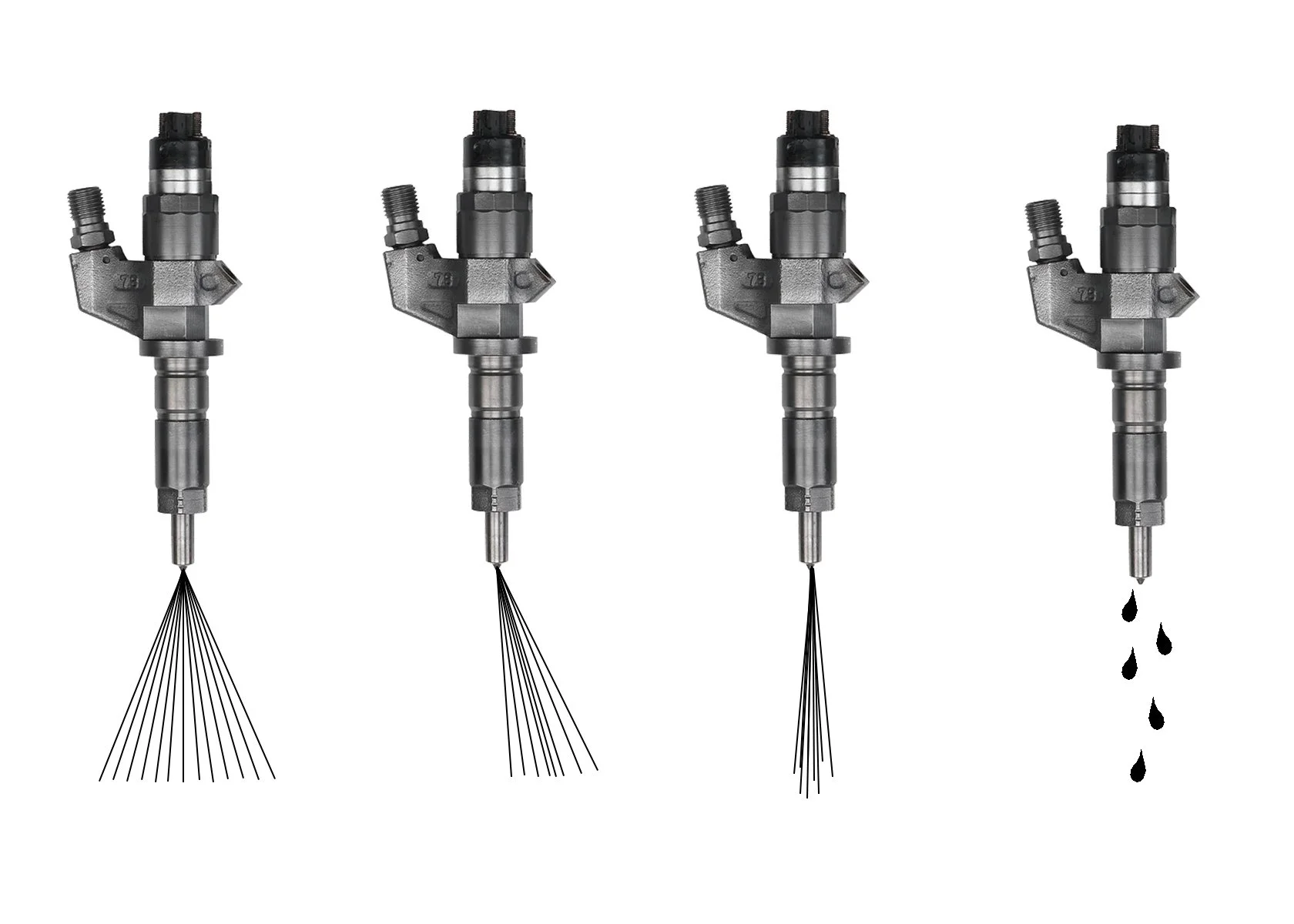Diagram showing proper injection vs. injection patterns when IDID is present within an injector
Preventative maintenance and the use of high-quality diesel fuel additives are essential in mitigating internal diesel injector deposits. Regularly using additives formulated to clean and protect injectors can help dissolve existing deposits and prevent new ones from forming. These additives typically contain detergents and dispersants that effectively clean injector components and keep them functioning optimally.
LEARN MORE BY READING SAE INTERNATIONALS STUDY ON INTERNAL DIESEL INJECTOR DEPOSITS
LEARN HOW PACCAR HANDLES IDID THROUGH THIER ENGINE FLUSHING PROCEDURES
TECHNICAL INFORMATION
INTERNAL DIESEL INJECTOR DEPOSITS
Internal diesel injector deposits (IDID) are a common issue affecting modern diesel engines and can significantly impact engine performance and efficiency.
IDID refers to the buildup of deposits inside diesel fuel injectors, which are critical components responsible for delivering precise amounts of fuel into the combustion chamber. These deposits are primarily composed of various hydrocarbon compounds, including unburned fuel, lubricating oil breakdown products, and other contaminants that accumulate over time.
The consequences of IDID can be detrimental to engine performance. As deposits accumulate inside the fuel injectors, they can disrupt the precise atomization of fuel during injection. This disruption can lead to uneven fuel distribution, poor combustion, reduced engine power, increased emissions, and decreased fuel efficiency.
In severe cases, IDID can cause injector nozzles to become partially or fully blocked, resulting in engine misfires and potentially damaging engine components.


